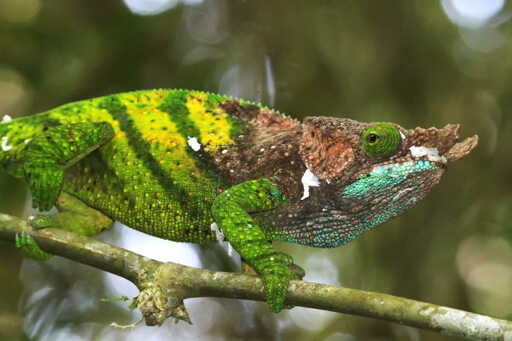Reptile species found only on islands are significantly more vulnerable to extinction than their mainland counterparts, yet remain vastly overlooked by researchers, according to a recent study. “Reptiles, partly due to their ability to endure long periods without food or water, are particularly effective island colonizers,” Ricardo Rocha, study co-author and an associate professor at the University of Oxford, U.K., told Mongabay by email. “Across the globe, they have co-evolved with a wide range of island taxa and play a crucial role in maintaining island ecosystem dynamics. Yet, despite this importance, they are often overlooked in favour of more groups perceived as more charismatic such as birds or mammals.” The researchers reviewed published scientific research on nearly 12,000 known species of reptiles recognized as of May 2021, and found that 2,543 species, or 21%, are confined to islands. About 30% of these island-restricted species are currently threatened with extinction, the study found, compared to 12% of mainland reptile species. Yet despite their much higher extinction risk, island species were the focus of just 6.7% of the published research from 1960-2021. The review also found that nearly half of the island-restricted species, have no published research targeting them at all. “The current research levels are insufficient to meet the needs of defining informed conservation strategies for a large number of threatened species,” Sara Nunes, study lead author from the University of Porto, Portugal, told Mongabay by email. What research does exist on island-restricted reptiles tends to focus on large, more widespread…This article was originally published on Mongabay
From Conservation news via this RSS feed


